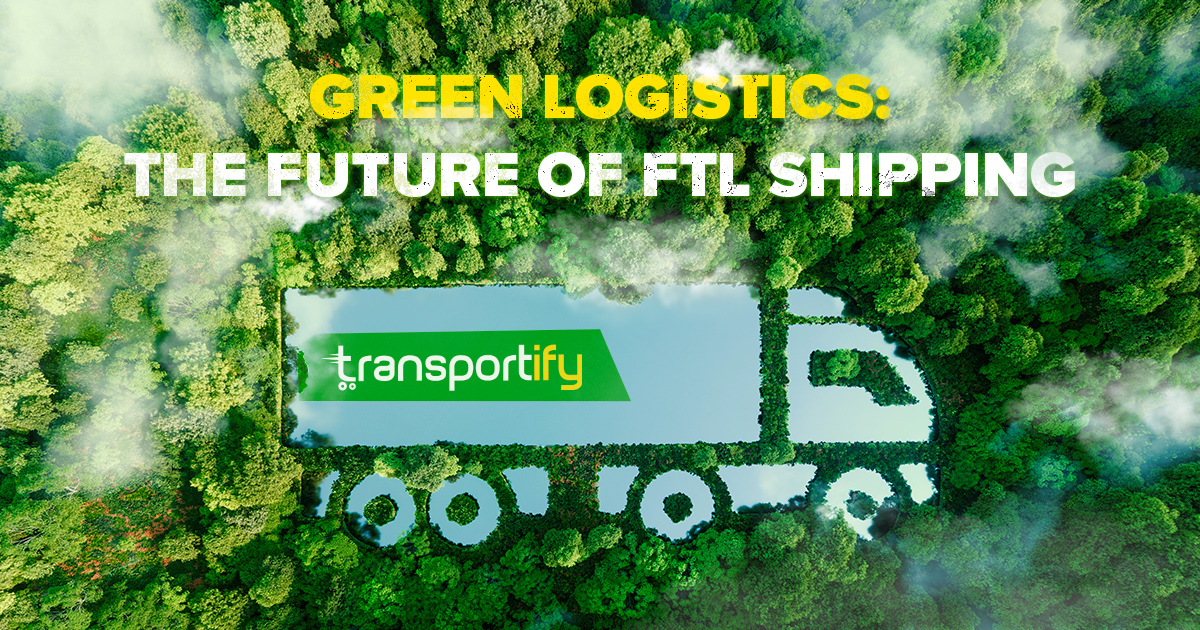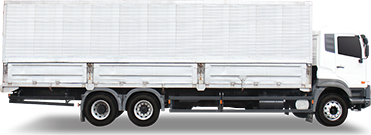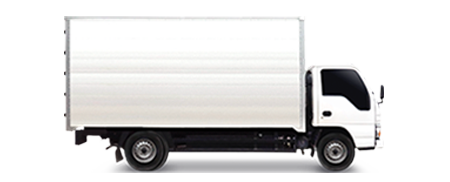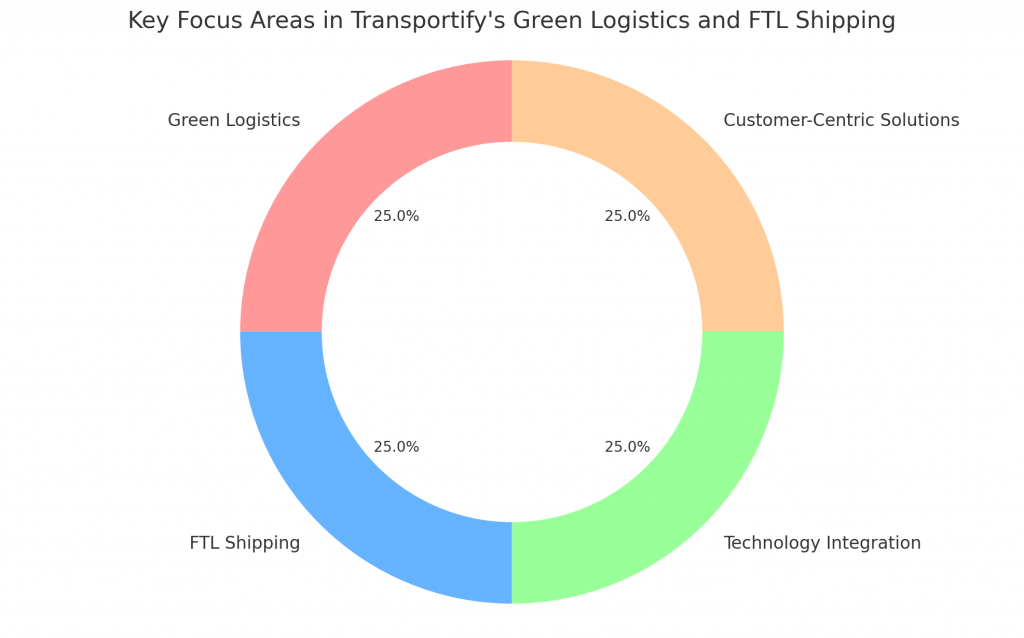
The concept of Green Logistics has become increasingly important in today’s environmentally conscious world. Transportify, a leading logistics company in the Philippines, is at the forefront of this movement, integrating eco-friendly practices into its comprehensive range of services. By focusing on reducing the environmental impact of logistics, Transportify is not just improving efficiency but also contributing to a sustainable future.
Green logistics involves various practices aimed at minimizing the environmental footprint of transportation and logistics activities. This includes optimizing route planning to reduce fuel consumption, using energy-efficient vehicles, and implementing recycling practices in supply chain operations. Transportify leverages technology to enhance these aspects, ensuring that businesses can benefit from both environmentally friendly and cost-effective logistics solutions.
One of the key components of green logistics is Full Truckload (FTL) shipping. FTL shipping involves the transportation of goods that fill an entire truck. This method is not only efficient for large-scale transportation needs but also aligns with green logistics principles by maximizing cargo space, thereby reducing the number of trips needed and consequently, the carbon footprint.
FTL Shipping: Efficient and Eco-Friendly
Market Size and Growth
FTL shipping is a cornerstone of efficient logistics, especially for businesses that require the transportation of large quantities of goods. Transportify’s FTL shipping services are designed to meet diverse business needs, from selecting the right FTL service provider to understanding the nuances of FTL logistics and courier services. This flexibility ensures that businesses can find solutions tailored to their specific requirements.
Moreover, FTL shipping is inherently more sustainable than other methods, as it minimizes the number of trips required for transportation. This efficiency not only reduces fuel consumption and emissions but also lowers the overall logistics costs for businesses. Transportify’s focus on FTL shipping underscores its commitment to providing environmentally responsible logistics solutions without compromising on quality or efficiency.
| Vehicle Type | Dimensions/ Weight Limits | Base Price (Metro Manila) | Base Price (Outside Metro Manila) | Base Price (Visayas/Mindanao) |
|---|---|---|---|---|
 Wing Van Wing Van | 32 to 40 x 7.8 x 7.8 ft 12000kg to 28000kg | 7000 PHP | 6500 PHP | 6500 PHP |
| 18 x 6 x 7 ft 7000kg | 4850 PHP | 4850 PHP | 4850 PHP | |
 Closed Van Closed Van | 10 to 14 x 6 x 6 ft 2000kg to 5000kg | 1600 PHP | 1450 PHP | 1450 PHP |
 Open Truck Open Truck | 10 to 21 x 6 ft x open 2000kg and 7000kg | 2300 PHP | 1950 PHP | 1950 PHP |
 L300/Van L300/Van | 8 x 4.5 x 4.5 ft 1000kg | 415 PHP | 374 PHP | 335 PHP |
 Small Pickup Small Pickup | 5 x 5 ft x open 1000kg | 418 PHP | 338 PHP | 325 PHP |
| 5.5 x 3.8 x 3.8 ft 600kg | 375 PHP | 292 PHP | 275 PHP | |
| 5 x 3.2 x 2.8 ft 200kg | 240 PHP | 210 PHP | 160 PHP | |
| 3.5 x 2 x 2.5 ft 200kg | 220 PHP | 190 PHP | 140 PHP |
Is FTL Shipping Environmentally Friendly?
FTL shipping’s environmental impact largely depends on various factors, including the type of vehicles used, fuel efficiency, and the efficiency of the logistics operations. While FTL shipping is often more fuel-efficient per unit of cargo compared to less than truckload (LTL) options due to direct routes and fewer stops, the overall environmental friendliness can be enhanced by incorporating green logistics practices.
Key Points for Environmental Friendliness in FTL Shipping
- Fuel Efficiency: Utilizing fuel-efficient trucks can significantly reduce carbon emissions.
- Direct Routes: Minimizing the distance traveled reduces the environmental impact.
- Eco-Friendly Trucks: Adoption of electric or hybrid trucks can enhance environmental friendliness.
SEE ALSO
- Emerging Trends in FTL Shipping: Essential Insights for Modern Business Logistics
- Freight and Cargo Manila to Masbate | Bicol Delivery
- A Guide to Renting Trucks for a Cheaper Delivery Service
How to Track the Environmental Impact of FTL Shipments
Tracking the environmental impact of FTL shipments involves monitoring several key indicators. These include fuel consumption, carbon emissions, and the efficiency of the logistics operations. Companies can use advanced logistics software that integrates carbon footprint calculators and tracking features. These tools provide valuable insights into the environmental impact of each shipment.
Steps to Track Environmental Impact
- Implement Advanced Tracking Software: Use software that calculates fuel consumption and emissions.
- Monitor Fuel Usage: Regularly track and analyze fuel consumption data.
- Evaluate Route Efficiency: Assess the directness and efficiency of routes taken.
- Analyze Carbon Emissions: Utilize tools that provide emission reports for each shipment.
- Technology: The Backbone of Modern Logistics
The integration of technology in logistics is transforming the industry. Advanced software and mobile applications make it easier for businesses to manage their logistics needs efficiently. Transportify’s use of technology extends to its mobile and web apps, which offer seamless booking and management of pickups and deliveries. These technological solutions contribute significantly to the efficiency of green logistics and FTL shipping, allowing for real-time tracking, optimized route planning, and improved communication between shippers and drivers.

The pie chart visualizes the key focus areas in Transportify’s approach to Green Logistics and FTL Shipping. Each segment represents an equal distribution of focus on Green Logistics, FTL Shipping, Technology Integration, and Customer-Centric Solutions, highlighting the balanced approach Transportify takes in these areas. This visualization underscores the comprehensive strategy employed by Transportify in revolutionizing transportation and logistics in the Philippines.
The Intersection of Green Logistics and FTL Shipping
Combining green logistics with FTL shipping can revolutionize the way businesses approach transportation. For instance, using eco-friendly vehicles for FTL shipping aligns with the principles of green logistics. This synergy is not only beneficial for the environment but also for the businesses opting for these services, providing a sustainable and efficient logistics solution.
| Green Logistics Practice | Benefit in FTL Shipping |
|---|---|
| Eco-friendly Vehicles | Reduced Carbon Footprint |
| Efficient Routing | Lower Fuel Consumption |
| Sustainable Packaging | Enhanced Cargo Safety |
Innovations in FTL Shipping: Paving the Way for Advanced Logistics
Transportify’s approach to FTL (Full Truckload) shipping is a testament to the company’s commitment to innovation. The realm of FTL shipping is not just about transporting large quantities; it’s about doing it smartly and sustainably. Transportify recognizes the importance of evolving trends in this sector, as evidenced in their resource on emerging trends in FTL shipping, providing essential insights for modern business logistics.
FTL shipping is particularly advantageous for businesses with substantial logistics needs. It not only ensures that large shipments are delivered in a single trip, but it also reduces the risk of damage and loss, enhancing overall supply chain efficiency. Transportify’s exploration of FTL logistics and courier services showcases the depth and breadth of their capabilities in this area.
| Benefits | Description |
|---|---|
| Efficiency | Consolidation of large shipments reduces transport times. |
| Cost-Effective | Lower costs due to reduced number of trips and optimized routes. |
| Safety | Reduced handling means lower risk of damage to goods. |
| Customization | Tailored solutions to fit specific business needs. |
Sustainable Practices in Logistics: Green Logistics
Sustainability is no longer just a buzzword; it’s a crucial element in the logistics industry. Transportify is leading the way in integrating sustainable practices into its operations. This involves not just using environmentally friendly vehicles and fuels but also implementing strategic planning to minimize waste and emissions. The discussion on types of services of logistics companies, including FTL and LTL (Less than Truckload), offers insights into how these services can be leveraged for more sustainable logistics.
Additionally, the company’s commitment to green logistics extends to educating customers and partners about the importance of sustainable practices. For instance, understanding the differences between FTL vs. LTL delivery options can significantly impact a business’s carbon footprint.
The Impact of Digitalization and Green Logistics on Supply Chains
The logistics industry is undergoing significant transformation due to digitalization and the rising demand for green logistics, particularly in emerging economies. The latest Logistics Performance Index (LPI) reveals that end-to-end supply chain digitalization is enabling countries to significantly reduce port delays. In comparison to developed countries, emerging economies have managed to shorten port delays by up to 70%.
Leveraging Technology for Optimized Logistics
In the age of digital transformation, leveraging technology is crucial in logistics. Transportify utilizes advanced logistics software to optimize its FTL shipping and green logistics initiatives. This technology enables real-time tracking of shipments, efficient route optimization, and seamless communication between drivers and customers. The integration of technology not only improves operational efficiency but also contributes to sustainability by reducing unnecessary mileage and idling times.
Transportify is redefining the logistics landscape in the Philippines with its innovative approach to FTL shipping and green logistics. By integrating sustainable practices, leveraging cutting-edge technology, and focusing on customer-centric solutions, Transportify is setting a new standard for efficient and eco-friendly logistics. As the company continues to evolve and adapt to the changing needs of the industry, its commitment to sustainability and innovation remains steadfast, ensuring a future-forward approach to logistics and transportation.
The Rising Demand for Green Logistics
With environmental concerns becoming increasingly important, the demand for green logistics is surging. A notable 75% of shippers are now seeking environmentally friendly options when exporting to high-income countries. This shift towards green logistics is not only a response to environmental concerns but also a strategic move to align with global market trends and consumer preferences.
Bottlenecks in International Trade
Christina Wiederer, Senior Economist with the World Bank Group’s Macroeconomics, Trade & Investment Global Practice, emphasizes that while most shipping time is spent in transit, the most significant delays occur at seaports, airports, and multimodal facilities. She suggests that policies targeting these facilities could greatly enhance reliability and efficiency in international trade.
Trade Timelines and Efficiency
The World Bank notes that, on average, it takes 44 days from the time a container enters the port of the exporting country until it leaves the destination port, with a standard deviation of 10.5 days. This duration accounts for 60% of the total time it takes to trade goods internationally. These statistics underscore the critical role of efficient port operations in the overall speed and reliability of global trade.
The integration of green logistics with FTL shipping represents the future of sustainable business practices in the logistics industry. As businesses in the Philippines and around the world increasingly focus on reducing their environmental impact, the adoption of eco-friendly logistics solutions becomes imperative. Transportify, with its array of FTL services and commitment to sustainability, stands at the forefront of this transformation, leading the way towards a greener, more efficient logistics future.
 | or |




 INSTANT QUOTE
INSTANT QUOTE

 Chat
Chat